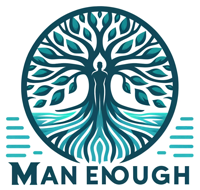https://www.theguardian.com/wellness/2024/oct/24/think-about-dying-death-meaning-belief
In my book Memento Mori, I created a 12-week program to help people to think about death in their own way. Below are a few of the prompts I offer to help readers excavate what ideas we may hold about death without even knowing it, and where they might come from. This is an essential first step to making more discriminating, considered choices about what we believe, knowing that the beliefs of our cultures and families are not in any way inevitable or provably true; they are just the traditions we happened to be born into.
This knowledge empowers us to release ideas that are not our own – that may be damaging, toxic, or simply not useful – and replace them with something that feels true to us. Try writing responses to the following questions in a journal.
-
Death memories. What is your earliest experience of death? How old were you? How did you feel? Was it a pet? A person? How was it talked about by your family? What was your grieving like? How about that of your family?
-
Death in your family. Was death talked about in your family? Were you invited to attend funerals? What were you told when a pet or loved one died? What did you think about what you were told?
-
Associations with death. What are your associations with the idea of death? Without thinking, write down every word that comes to your mind. They might include: fear, decay, end, sadness, grief, rebirth, corpse, horror films, release, surrender ... Added bonus: divide these words into two columns, one for positive associations, one for negative associations. Is there an imbalance between the two?
-
A good death. In the 19th century, a good death was considered one at home, surrounded by family. What is your idea of a good death? Do you hope to die painlessly in your sleep? Would you like to die in a special place? Alone or with someone (or many) you love? Write, in detail, about what an ideal death would look like to you.
-
Thought experiment: death is not the end. The death of the body also meaning the end of our existence is, historically speaking, very new, and it runs counter to the beliefs of people for nearly all of human history in all parts of the world. One fun thought experiment I have enjoyed: what are the odds that all of human history is wrong, and our particular historical moment has it right? Further, what have been the fruits of the past 150 years that we have lived with these beliefs? Has it made a better, kinder society? If it were as simple as choosing, what would you believe? Write down your thoughts.
-
Myths and death. Were you brought up with a mythic or religious understanding of death? What did these stories tell you about your life, your relationship to the natural world, and punishment? What did they tell you about death and what happens after? How did they impact the way your life unfolded? What are your thoughts about it now?
-
How I feel about death. Complete these sentences.
The worst thing I can imagine about death is …
The best thing I can imagine about death is …
The thing that most frightens me about death is …
The thing that most frightens me about being dead is … -
Your own death. Write a short story about your own death, in as much detail as possible. What was dying like? Who, if anyone, was with you? How did it feel? Was there any sort of post-death existence? What was it like?
Joanna Ebenstein is the founder and creative director of Morbid Anatomy.
From Memento Mori: The Art of Contemplating Death to Live a Better Life by Joanna Ebenstein, published by TarcherPerigee, an imprint of Penguin Publishing Group, a division of Penguin Random House, LLC. Copyright © 2024 by Joanna Ebenstein
